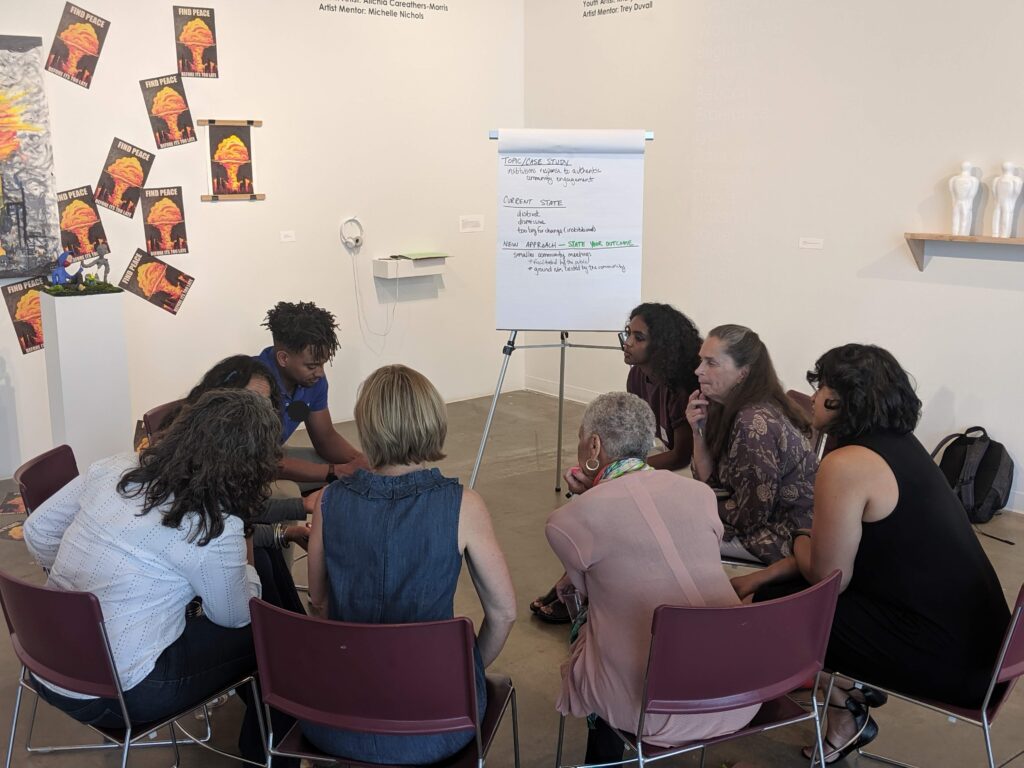Over the past few weeks, we’ve shared a few tools around the topic of facilitation. These tools include agenda-crafting, setting agreements, questions to ask while facilitating, and grounding practices like the empty chair. We believe these tools are useful as you prepare for, and engage in, facilitating conversations. While we can (and will) continue to share practical tools that can help you conduct successful conversations, today I would like to shift our attention to how we prepare ourselves to facilitate and engage in conversations where difference arises. This is especially important to consider since we often believe ourselves to be third parties, somewhat removed from the conversation when, in practice, we are embedded in the conversation as much as participants are.
Everyone comes to the table with their own identity, perspective, and lived experience, including the facilitator. Thus, we must assess our own assumptions, biases, and expectations every time we lead a conversation. I recommend you check out Brenda J. Allen’s book Difference Matters, it is a great resource to begin building your understanding of how to value, listen to, and communicate identity and difference. I particularly like the “ID checks” and “Reflection Matters” parts throughout the book that allow you to not only think of difference and identity for others, but also around your own lived experience. For example, when is the last time you reflected on your experience and relationship to gender, class, or ability? Reflecting upon our own standpoints in relation to others allows us to be fully present as we engage in facilitation, even if we are not active participants.
As you prepare to facilitate, ask yourself these grounding questions:
- How do I show up in the room in relation to others?
- What values, assumptions, and perspectives do I bring with me?
- How may my lived experience differ from those in the room?
- How can I use my role as facilitator to ensure multiple perspectives are considered?
- What steps can I take to ensure difference is heard and valued in conversation?
As a student, I had the opportunity to participate in community conversations through the Center for Public Deliberation. These conversations were engaging, insightful, and generative. They were also attended primarily (in the case of the events I took part in) by white folk in later stages of their lives, with a considerably different lived experience from my own as a 19-year-old Latino college student. There were times when those conversations challenged my assumptions, and times when I poignantly felt that different points of view were missing from the table. In either case, I would find myself not knowing how to react as a facilitator because I had not prepared (or had enough experience) to communicate around difference.
By engaging with the questions above prior to facilitating, you are giving yourself the chance to reflect on how you are perceived in the room, how others may react to you, and how you may react to different points made in conversation. It is also worth noting that you can’t prepare for everything that may come up in facilitation, and I encourage you to embrace and lean into difference when it arises.
Tools like the empty chair are useful when difference arises (and when you would like to bring in difference) in facilitation. Take for example, if a group comes to a consensus rather quickly, you may point to an empty chair and ask, “if someone with a differing view was sitting in that chair, what do you think they would say?” As a facilitator, you can also step into the conversation with a sense of “principled impartiality” if you come across harmful or misinformed points of view. As presented by Dr. Martin Carcasson who coined the term, principled impartiality holds true that you can be impartial while also reaffirming a commitment to pluralism and quality information. That is, you can value multiple perspectives while being averse to misinformation. You can learn more about principled impartiality in this National Civic League article.
As you continue facilitating difficult conversations in community, I invite you to embrace difference when it emerges. I’m confident the tools presented in this blog will give you a solid foundation for beginning to engage with your own positionality as well as that of others and equip you with readily available resources to conduct meaningful conversations.


